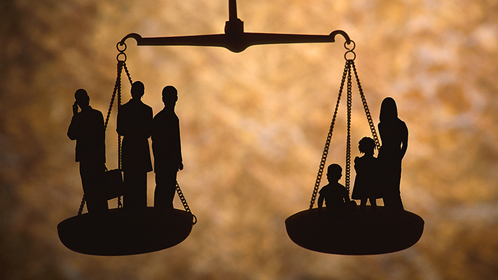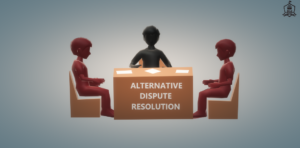There is a proverb that “Everyone is equal before law”. Mighty & weak, privileged & under-privileged, rich and poor all must enjoy equality. Legal aid is a mechanism in providing this equality. Legal aid is the provision of assistance to people who are unable to afford legal representation and access to the court system. Legal aid is regarded as central in providing access to justice by ensuring equality before law, the right to counsel and the right to fair trial enshrining the spirit of Article 7 of Universal Declaration of Human Rights 1948. In modern justice system, the judicial adjudication is very costly, which prevent the poor from getting justice. The poor could not afford the relevant cost needed. So, for ensuring the rights of the poor and justice, legal aid is compulsory.
The necessity of legal aid has been acknowledged through past century. Although access to court was recognised as constitutional right, there was no constitutional right to the provision of legal assistance at public expense if one could not afford a lawyer. Taking that into account, the foundation of legal aid was laid. The emergence of the first challenge to its structure was the law centre movement in England. So, the opening of the first law centre took place, which ultimately leaded towards the emergence of legal aid in that country. In 1999, “The Access to Justice Act’ created a new Community Legal Service & a Criminal Defence Service for the sake of accelerating legal aid in England. Finally, in 2012, “Punishment of Offenders Act” made changes to the civil and family legal aid. Introducing for the first time the concept that legal aid would only be available for those legal topics which came with the scope of the new statutory scheme. This glossy scheme made England a pioneer in the periphery of legal aid.
In line with the international commitment to the principle of equality of justice, it has been pledged in the preamble of the constitution of the People’s Republic of Bangladesh that one of the fundamental aims of the state is to realize a society in which equality of justice will be secured for all citizens. In Bangladesh, an act, namely “The Legal Aid Act 2000” was enacted to ensure the provisions for providing legal aid. The act is an honest attempt of the government to lend it’s assistance to the poor. But there are a few loopholes in this act as this act doesn’t specify cases for which legal aid can be provided. Also, the procedure of selecting application for legal aid is not clear & the process of consideration of application is very slow, so the applicant doesn’t get justice when it is essential. It also doesn’t ensure the accountability of the board members who consider the applications. These are some major backlogs regarding this act.
In Bangladesh most of the people can’t go to court for justice for money issues in that situation we can’t say it is the justice. There are some NGOs that are providing legal aid in Bangladesh. Most notably, Ain O Shalish kendra (AKS), Bangladesh Legal Aid and Service Trust (BLAST), Bangladesh National Women Lawyers Association (BNWLA) are playing the leading roles in the strata of legal aid in Bangladesh.
Bangladesh’s legal aid service has a long way to go compared to some other countries that it drew inspiration from while forming this service. In England legal aid is available for most criminal cases and many types of civil cases. But, in Bangladesh there are no certain types of cases where legal aid can be applied. But the criterion for achieving legal aid is pretty similar in these two countries. This creates a bridge between these two country’s legal aid systems. In U.S.A there is a “Judicare” model, where law firms are paid to provide legal assistance to eligible clients just like the country’s Medicare system. It is a very effective method from which Bangladesh can learn about what should be the ideal model for the country’s legal aid service.
There are many lacking’s in Bangladesh’s legal aid system. There is no uniformed printed form for application for legal aid. The duties and responsibilities of the Co-Ordinators are not defined and his/her responsibility to report to the District Judge is not made mandatory. Also, there is no provision for any advance payment to legal aid lawyers. There is also less campaigning about the government given legal aid. So people are unaware of government’s initiative. The fund allotted every year is not mandated according to the need. All these problems are taking a big toll on Bangladesh’s legal aid service.
But, there is also a ray of hope. Bangladesh’s legal aid service can achieve great success in a number of ways. Firstly, The National Legal Aid Service head office should have a logistic capacity and enough manpower. The District Legal aid office should be located in the same place as the Court, so that it would be easy for legal aid seekers to perform communication. Steps should be taken that create awareness among people about legal aid. At the same time, the allocation of budget for the legal aid services should be properly allocated and used.
Moreover, the office should be kept under strict supervision by the Government following the directions of “The Legal Aid Act- 2010.” Side by side noteworthy implementation of the aforementioned Act will suffice the channel of Legal Aid. Thereafter, everyone will become equal before justice system and Legal Aid practice will reach its goal in this country.
Debjuty Dhar
Latest posts by Debjuty Dhar (see all)
- Consequences of the Shift of Talented Human Capital - May 8, 2019
- Legal Aid in Bangladesh: The Pathway towards Access to Justice - May 24, 2018




